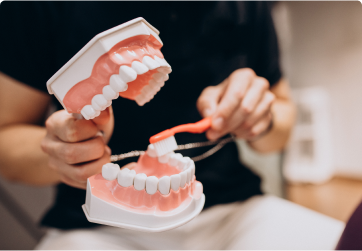
Standard Treatment
The only way to salvage the tooth is to remove the nerve plus bacteria and any other decay and fill the resultant space. Depending on the extent of the gap left, your dentist will recommend unique medicated dental materials to replenish and restore your dental formula to 100% functionality.
Having your root canal done is the standard treatment procedure if you want to save your tooth. Otherwise, it would die, and eventually, you will have to remove it.
However, it is essential to note that removing the tooth does not entirely solve the problem because it is more costly and also affects the adjacent teeth. The root canal restoration has been proven to be safe and can last a lifetime.
Signs and symptoms for possible root canal therapy:
If you begin to experience the following changes in your dental system, you might need to visit your dentist for examination and a possible root canal therapy.
- Severe toothache and pain, especially when chewing or biting
- Abscess or pimples on your gums
- Chips and cracks on some of your teeth
- Extreme sensitivity to hot or cold items even after removing sensations
- Swollen or tender gums
- Deep decay and darkening of your gums
Sometimes you will not experience any of these symptoms, but your dentist will recommend root canal therapy if pulpal inflammation or necrosis is discovered.
What does root canal therapy involve?
The root canal procedure begins by appointment with your dentist or a root canal specialist, called an endodontist. The procedure is typically completed in one visit, but multiple visits may be needed depending on the particular tooth and infection.
The treatment process involves the following steps:
Stage One
At this initial stage, the dentist will use x-ray images to examine the tooth and identify specific target areas. He/she will then administer a local anesthetic to numb the region and then place a dental dam (protective sheet) over the area to isolate the specific tooth. The isolation helps keep the tooth clean and free from saliva during the procedure.
Stage Two
The dentist specialist will then make an opening in the selected tooth’s crown to access the pulp chamber. They will then clean the area removing the pulp, nerve, bacteria, and any decays. It is at this stage that they reshape the gap left for refilling.


Stage Three
After cleaning, reshaping, and disinfecting, the dentist will fill the root canal with a biocompatible material. It is a rubber-like material, also known as gutta-percha, placed together with a medical adhesive element to seal the root canal.
In most cases, your dentist will recommend a temporary filling, which they will remove before your tooth is restored.
Stage Four
Once the root canal is completed the tooth will need to be restored to provide functionality and strength. Often times crowns are needed on back teeth following root canals.
Some teeth have different structures and will need specialized procedures. For example, if your tooth does not have a good system to hold the crown or restoration in place, the dentist may place some posts inside it for support.
We recommend that you inquire with your dentist about the ideal restoration planned for your tooth.







